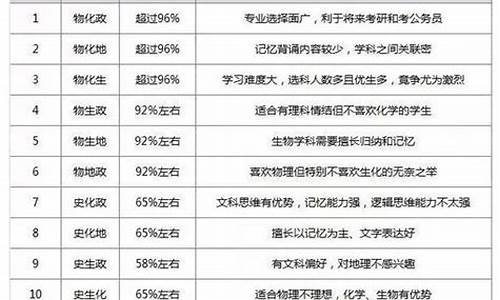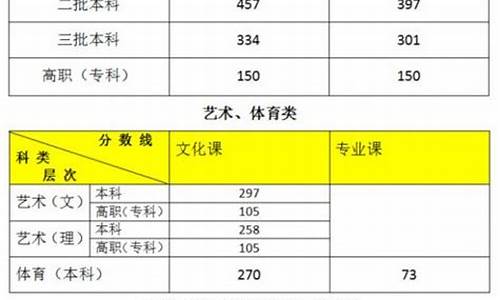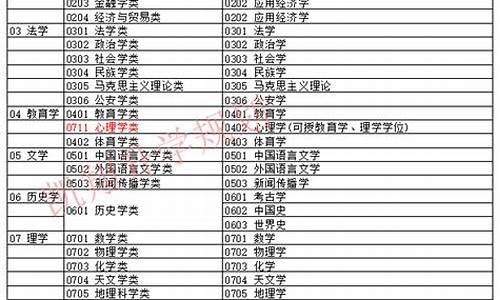您现在的位置是: 首页 > 教育改革 教育改革
高考英语虚拟语气,高考英语虚拟语气题目解析
tamoadmin 2024-07-05 人已围观
简介1.虚拟语气的用法总结归纳_英语中的运用讲解2.高考英语之虚拟语气归纳整理的注意事项3.谁还记得英语中虚拟语气的规律啊4.高考英语之虚拟语气归纳整理的wish和as if5.高考英语语法:高中英语语法-I drop caps 和虚拟语气1、shall表示单纯的将来,用于第一人称; 第二人称只用于问句; 口语中常以will代替,作“将要,会”解。2、shall表示说话者的意图、允诺、告诫、警告、命令
1.虚拟语气的用法总结归纳_英语中的运用讲解
2.高考英语之虚拟语气归纳整理的注意事项
3.谁还记得英语中虚拟语气的规律啊
4.高考英语之虚拟语气归纳整理的wish和as if
5.高考英语语法:高中英语语法-I drop caps 和虚拟语气

1、shall表示单纯的将来,用于第一人称; 第二人称只用于问句; 口语中常以will代替,作“将要,会”解。
2、shall表示说话者的意图、允诺、告诫、警告、命令、决心等,用于陈述句的第二、第三人称,作“一定会”解。
3、shall在条约、规章、法令等文件中表示义务或规定,一般用于第三人称,作“应”“必须”解。
4、shall在疑问句中表示征求对方意见,主要用于第一、第三人称。
5、shall用在表示希望、要求等的从句中与should作用相近,作“应该”“要”解。
近义词:will
1、读音:英 [w?l] 美 [w?l]?
2、释义:将,(表示愿意)愿。
3、语法:will用作助动词时主要用于构成将来式,在美式英语中各个人称均可用will构成将来式,而在英式英语中则多用于第二、第三人称。
4、用法例句:Had?I?known?that?I?would?never?have?come.?
5、白话译文:要是早知道,我绝不会来的。
虚拟语气的用法总结归纳_英语中的运用讲解
虚拟语气是以动词的特殊形式来说明句中所叙述的内容不是事实,或是不可能发生的事情,而是一种愿望、建议或是与事实相反的一种假设。虚拟语气通常出现在各种主从复合句中。
一、在宾语从句中
1.当主句的谓语动词为“suggest,propose,advise,insist,order,demand,require,request, desire’’等表示“建议”、“命令”、“请求”和“要求”的动词时,其后的宾语从句中要用虚拟语气“should+动词原形”(在美国英语中 should省略)。例如:
I suggest that we(should)hold a meeting tonight.我建议我们今晚开个会。
We advise that steps(should)be taken at once.我们建议要立刻采取措施。
They insisted that he(should)begin the work at once.他们坚持让他立刻开始工作。
He ordered that aU(should)take part in the work.他下令所有的人都要参加这项工作。
另外,当主句动词为“ask,move,urse”等意为 “要求”、 “提议”和“极力主张”时,其宾语从句也常用虚拟语气。例如:
He asked that he be given an opportunity to try.他要求给他一个尝试的机会。
I move that the money be used for books. 我提议把这笔钱用于买书。
They urged that we take action on this matter immediately.他们极力主张我们对这件事立即采取行动。
2.当主句动词为wish,表示“但愿……”,“要是……该多好叼”之意时,其后的宾语从句有以下三种虚拟语气形式。
①动词用过去式来说明与现在的事实相反(BE动词常用were,但有时也可用was)。例如:
I wish 1 were/Was as strong as you.我要是像你一样强壮就好了。
I wish l remembered his address.我要是记住他的地址就好了。
有时;为了强调现在状态下能发生某种情况或进行某项动作,从句中的动词也可用过去进行式。例如:
I wish it wasn’t raining.要是天不下雨就好
了。
②动词用过去完成式说明与过去的事实相反。例如:
We wish we had paid more attention to our pronunciation.我们以前要是能更注意我们的发音就好了。
He wished he had stayed at home。他但愿他呆在了家里。
③情态动词“would,could,might”等后接动词原形,表示对将来的希望(通常不用should)。例如:
I wish he would try again.我希望他再试一下。
We wish he could come.我们希望他能来。
3.在prefer之后的宾语从句中用“should+动词原形”(should可省略)。例如:
We prefer that the plan(should)be fully discussed before being put into execution.我们希望在计划实施之前进行认真的讨论。
4.在would rather之后的宾语从句中,其动词用虚拟语气,表示句子的主语(某人)宁愿让另一人做某事。
①用动词过去式表示现在或将来要做的事。例如:
I’d rather you went home now.我宁愿让你现在就回家。
Don’t come tomorrow.I’d rather you came nextweekend.明天别来,我宁愿你下个周末来。
一Shall l open a window?我开窗行吗? 一I’d rather you didn’t.你最好别开。
②用动词的过去完成式表示过去的动作。
例如:
I’d rather you hadn’t done that.我真希望(宁愿)你没做过那件事。
二、在主语从句中
1.在句型“h is/was+过去分词+that从句”中,当过去分词为“suggested,ordered,desired,insisted, required,demanded,requested,decided,proposed,urged’’等时,从句中要用“should+动词原形”(should可省略)。例如:
h is desired that everyone(should)get erything ready bY toniShL要求每一个人在今晚之前要将一切准备好。
It is requested that Miss Zhang(should) give a performance at the party.请求张**在晚会上表演一个节目。
2.在句型“h is/Was+形容词+that从句”中,当形容词为“important,necessary,strange,natural’’等时,从句中要用“should+动词原形”(should可省略)。例如:
It is important and necessary that we should master a foreign language.掌握一门外语对我们来说是重要的和必要的。
It is strange that he (should) refuse your help.他竟然拒绝你们的帮助,真奇怪。
3.在句型“h is/was+名词+that从句” 中,当名词为“a pity,a shame,no wonder’等时,从句中要用“should+动词原形”(should可省略)。例如:
It is a great pity that he should be so selfish。真遗憾,他竟然那么自私。
三、在同位语从句或表语从句中
在名词“suggestion,proposal,idea,plan,order,advice’’等后面的同位语从句或表语从句中,用“should+动词原形”(should可省略)。例如:
I made a proposal that we(should)hold a meeting next week.我提出了我们下个星期开会的建议。(同位语从句)
His suggestion that the meeting(shoald)be held in this room has been accepted.他的关于在这个房间召开会议的建议被采纳了。(同位语从句)
My idea is that we(should)get more people to attend the conference.我的想法是我们多找些人来参加会议。(表语从句)
四、在定语从句中
在句型“h is(high)time+(that)从句”中,谓语须用虚拟语气。用过去式表示现在或将来的意念,意为“现在是该做某事的时候了”。
例如:
It iS(high)time(that)we went home.我们该回家了。
五、在状语从句中
1.在假设条件句的if条件从句中
假设条件句一般是由“if引导的条件从句+主句”构成。if从句中的谓语动词要用虚拟语气的形式。if从句的假设可以是与现在事实相反的条件、与过去事实相反的条件或者与将来不太可能成为事实的条件。下面分述表示这三种条件的if从句的结构:
①与现在的事实相反,其句子结构为“If+主语+were/谓语动词的过去式”。例如:
If I were you,I shouldn’t do that.如果我是你,就不会做那件事了。
We would go with you if we had time.如果我们有时间的话,就和你一道去了。
We could ask him if he were here.如果他在这儿,我们就可以问他了。
②与过去的事实相反,其句子结构为“If十主语+谓语动词的过去完成式”。例如:
If he had seen you yesterday,he would have asked you about it如果昨天他见到你,他就会问你那件事了。
If you had come earlier,you would have met him.如果你早点儿来,就会遇到他了。
1 would have called you if I had known your telephone number.如果我知道你的电话号码,就打电话给你了。
③表示将来不太可能实现的条件,其句子结构为“If+主语+动词过去式/were to+动词原形/should+动词原形”。例如:
If he came tomorrow,he would find me in the schoo1.如果他明天来的话,会在学校找到我。
If it should rain,the crops would be saved.如果下雨,庄稼就有救了。
If it were to snow tomorrow,they would not go out.如果明天下雪,他们就不出去了。
注:在if从句中,如果含有“were,should,had’’时,可省去if而将“were,should,had’’置于句首,构成倒装句。例如:
Were l in your position,1 would go.如果我处在你的位子上,我就走了。
Had you arrived five minutes earlier,you could have seen them off.如果你早到五分钟,
你就可以给他们送行了。
Should he come,tell him to ring me up.如果他来的话,叫他打电话给我。
2.在目的状语从句中
①在由lest
和in case等引导的目的状语从句中,用“should+动词原形” (should可省略)。例如:
He ran away lest he(should)be seen.他跑走了,以免被人看到。
She explained again and again in case he (should)misunderstand her.她解释了一遍又一遍,以免他误解她。
in case等引导的目的状语从句中的谓语有时也可用陈述语气。此时,从句表示的就是真实情况,而不是虚拟情况。例如:
Take warm clothes in case the weather is cold.带上厚衣服,以防天气变冷。
②在由“so that…”和“in order that…”
引导的目的从句中,要用“can/could/may/might/would+动词原形”,以表示目的并非事实。例如:
She stayed at home for a few days so that
she might/could take care of her sick mother. 她在家呆了几天,以便照顾她生病的母亲。
③在由“for fear that…”引导的从句中,用“should+动词原形”(有时也可用may/might/would)。例如:
He worked hard for fear that he should fail.他努力学习,害怕考试不及格。
3.在方式状语从句中
由as if和as though等引导的方式状语从句中,如果从句所表达的情况是虚拟的,则①常用动词的过去式来表示与现在或当时的情况相
反;如果是BE动词,则用were;②常用过去完成式来表示与过去的情况相反。例如:
She loves the child as if he were her own.她爱这孩子就好像是她亲生的。
(实际上不是她亲生的孩子)
Holding his head high,he walked past the pole and the soldiers as if they didn’t exist.他昂着头从旗杆和卫兵身旁走过,就像他们不存在似的。(实际上他们是存在的)
He speaks English as well as ifhe hadstudied in England.他英语说得这么好,好像他去英国学过英语似的。(实际上他没有在英国学过英语)
4.在原因状语从句中
在“I’m sorry that.—/We were surprised that一./They were disappointed that...”等引导的表示原因的状语从句中,用“should十动词原形”。例如:
I’m sorry that he should be in such poor health.他的身体这么差让我很难过。
We were surprised that she should be so stubbom.她这么固执让我们感到奇怪。
上述句子有时也可以用陈述语气,但这仅表示所叙述的是事实,而不表示讲话人的情绪。
高考英语之虚拟语气归纳整理的注意事项
当一个人说话时欲强调其所说的话是基于自己的主观想法,愿望,假想,猜测,怀疑或建议,而不是根据客观实际,就用虚拟语气。下面,就让我把整理到的关于虚拟语气的用法的资料列出来, 以供大家参考。
?
虚拟语气在状语从句中的运用虚拟语气在状语从句中的运用除了可以表示条件外,还可以表示比较、结果、目的等。虚拟语气用于表示条件的状语从句中,一般称为虚拟条件句。根据时间的不同,虚拟条件句中谓语动词时态的变化可能有三种形式,即现在、过去和将来。
If it did, it would open up its diversity program, now focused narrowly on race and gender, and look for reporters who differ broadly by outlook, values, education, and class.2001年 TEXT1
这是一个含有条件状语从句的复合句。If it did是条件状语从句。主句中主语是it;谓语动词有两个,分别是would open up...和look for...。
这是一个与现在事实相反的虚拟语气,从句用一般过去时,主句用would+动词原形open up和look for。
参考译文:如果它能注意这个问题的话,它就会拓展其雇员多样化专案,而目前的专案只单纯考虑招收不同种族和性别的员工,去雇佣那些在世界观、价值观、教育背景及社会阶层方面各不相同的记者。
虚拟语气在名词性从句中的运用虚拟语气除了用作状语从句中外,还可以用作主语从句、宾语从句、表语从句、同位语从句等名词性从中。
第一, 虚拟语气在主语从句中的运用
当it作形式主语,后面用形容词作表语,即在it is + adj.这样的句型中,当描述主语的表语形容词是advisable,critical,crucial,desirable,essential,imperative,important,incredible,inevitable,necessary,remend,strange,urgent等形容词时,主语从句的谓语动词多用虚拟语气,如果是现在时,谓语动词用should/would +动词原形should/would经常省略;如果是过去时,则用should/would + have done的形式。
It was inevitable that this primacy should have narrowed as other countries grew richer. Just as inevitably,the retreat from predominance proved painful.
这是一个含有主语从句的复合句。句首的It是形式主语,真正主语是that从句,该主语从句使用了虚拟语气should+完成时。2000年 TEXT1参考译文:随着其他国家日益富裕,美国的这一优势地位逐渐下降是不可避免的。惟其不可避免,从优势地位上退出愈发痛苦不堪。
虚拟语气在同位语从句中的运用名词advice、assumption、decision、demand、desire、insistence、order、proposal、requirement、remendation、suggestion……后面若有同位语从句,从句的谓语动词也应使用虚拟语气的形式。
Such behaviour is regarded as “all too human”,with the underlying assumption that other animals would not be capable of this finely developed sense of grievance. 2005年 TEXT1
这是个含有同位语从句的复合句。that引导的同位语从句的谓语动词由would+动词原形be构成。
参考译文:这样的行为被认为“完全是人类独有的特点”,其潜在的含义是其它动物没有这种敏锐的委屈感。
虚拟语气在表语从句中的运用与同位语从句一样,若主语是某些特定动词的同根名词参考上一部分同位语从句,要在它后面的表语从句要用虚拟式。
Another decision is whether the school should be one of the vast majority financed by the State or one of the very *** all but influential minority of private schools,though this choice is,of course,only available to the *** all number of those who can pay. 英语专业四级考试01年Text D
这是个含有表语从句的复合句。主语是another decision;谓语是is;whether……or……是表语从句,其中谓语动词由should+动词原形be构成。参考译文:另一个要做出的决定是:应该选择一所占绝大多数的国立学校呢,还是选择一所数量虽小却有影响力的私立学校呢,当然,只有少数有支付能力的人才有这种选择的权利。
虚拟语气在宾语从句中的运用表示“建议、请求、命令、要求”等主观意向的词如:suggest、advise、assume、decide、demand、desire、insist、propose、order、remend、require、suggest……,引导宾语从句时需用虚拟语气。虚拟语气中的格式很固定:谓语动词用should+动词原形,should可以省略。注意这种句型中的虚拟语气形式不受主句动词时态的影响。
Theories concerning on the individual suggest that children engage in criminal behavior because they were not sufficiently penalized for previous misdeeds or that they have learned criminal behavior through interactions with others.2004 CLOSE
此句是个含有一个宾语从句、两个原因状语从句的复合句。suggest是主句谓语,Suggest后面的宾语从句中的谓语动词engage in前面省略了should.
参考译文:关于个体研究的理论认为,孩子们从事犯罪活动是因为以前他们做错事情时对他们的惩罚力度不够,或是因为他们通过与其他人的交往学会了犯罪。
1.高考虚拟语气完成句子
2.would的用法和例句
3.语法小点——虚拟语气
4.虚拟语气“新”归纳
5.英语六级语法精析之虚拟语气
谁还记得英语中虚拟语气的规律啊
使用虚拟条件句时要注意的几点:
1.当条件状语从句表示的行为和主句表示的行为所发生的时间不一致时,被称为“错综时间条件句”,动词的形式要根据它所表示的时间作出相应的调整。如:
If you had followed my advice just now, you would be better now.
If you had studied hard before, you would be a college student now, and you would graduate from a college in four years’ time.
2.if 省略句
在条件句中可省略if, 把were, had, should提到句首 , 变为倒装句式。如:
If I were at school again, I would study harder.
→ Were I at school again, I would study harder.
If you had come earlier, you would catch the bus.
→ Had you come earlier, you would catch the bus.
If it should rain tomorrow, we would not go climbing.
→ Should it rain tomorrow, we would not go climbing.
注意:若省略的条件句中的谓语动词是否定形式时,不能用动词的缩略形式。如:我们可以说:Were it not for the expense, I would go abroad now. 但不能说:Weren't it for the expense, I would go abroad now.
3.用介词短语代替条件状语从句。常用的介词有with, without, but for。如:
What would you do with a million dollars? ( = if you had a million dollars)
We couldn't have finished the work ahead of time without your help. ( = if we hadn't got your help)
But for the rain ( = If it hadn't been for the rain ), we would have finished the work.
4.含蓄条件句
有时为了表达的需要,在虚拟语气中并不总是出现if引导的条件句,而通过其他手段来代替条件句。
I was ill that day. Otherwise, I would have taken part in the sports meet. (副词)
He telephoned to inform me of your birthday, or I would have known nothing about it. (连词)
A man who stopped drinking water would be dead in about seven days. (定语从句)
I might have given you more help, but I was too busy. (连词)
Everything taken into consideration, they would have raiser their output quickly. (独立主格结构)
混合型与含蓄型虚拟语气
1。混合型虚拟语气:
当虚拟条件从句与结果主语所表达的时间不一致时,被称为“混合条件句”,这种虚拟语气被称为“混合型虚拟语气”,动词的形式要根据它所表达的时间作相应调整。如:
If you had followedthe doctor's advice ,he would be all right now.(条件从句表达的时间是过去,因此用had+过去分词;主句表示的时间是现在,因此用would+动词原形)
2.含蓄型虚拟语气:
有时候,虚拟条件不是通过if引导的条件句来表示,而是暗含在上下文中
(1).用but for 、without(如果没有)等来代替条件从句,如
Without electricity human life would be quite different=If there were no electricity ,human life would be quite different
(2) 用otherwise、or(or else),even though等表示与上文的情况相反,从而引出虚拟语气。如:
I lost your address.Otherwise,I would have visited you long before. =I lost your address.If I hadn't lost your address ,I would have visited you long before.
(3) 虚拟条件通过but暗示出来。如:
He would have given you more help,but he was too busy
他本来会给你更多的帮助,但是他太忙了。也就是说,如果那时他不忙,他可以给你更多的帮助。句中but he was too busy实际上暗示了一个虚拟条件——如果那时他不忙
He would lose weight,but he eats too much
他本来可以减肥的,但是他吃的太多了。也就是说,如果他吃得不多的话,他是可以减肥的。句中的but he eats too much实际上暗示了一个虚拟条件——如果他吃得不多。
高考英语之虚拟语气归纳整理的wish和as if
英语动词中一般有三种语气:用来陈述事实的陈述语气;用来表示命令、请求或劝告的祈使语气;还有用来表示与事实相反的假设、愿望、建议的虚拟语气。历年来,体现英语交际功能并能考查学生对对话语境,说话者语气理解能力的虚拟语气相关试题在高考中不断出现。请看下面一些例题: 1. I didn't see your sister at the meeting. If she had come, she would have met my brother.(NMET'94) 2. When a pencil is partly in a glass of water, it looks as if it were broken. (NMET'95) 3. You didn't let me drive. If we had driven in turn, you wouldn't have got so tired. (NMET'96) 4. Should it rain tomorrow, we should have to put off the visit to the Yangpu Bridge. (上海94 ) 由此可见,掌握好虚拟语气很重要。在学习中,学生一向把它列为难度大、形式多样、不易掌握的语法项目之一。同时,虚拟语气考题也是学生易失分的一个方面。其实,虚拟语气主要是考查学生对虚拟语气谓语动词形式的掌握。而虚拟语气动词形式多样,有should+动词原形;有动词用过去式,过去完成时;有would (could,should,might )+动词原形等等。困难就在学生不能清楚记忆什么情况下用哪种动词形式。于是,针对此问题,笔者就虚拟语气动词形式进行研究、分析,摸索出一定的规律,把虚拟语气根据动词形式归类成如下三种。 一、非真实条件句中的虚拟语气形式(即三个公式)。 1.与现在事实相反的。 条件从句主句 动词用过去式(be的过去式一般用were) 主句 would(could,should,might)+动词原形(should只用于主语为第一人称) 例:If I had time now, I would go to the cinema with you. The boy is not hungry. If he were hungry, he would eat the cake. 2.与过去事实相反的。 条件从句 had+过去分词 主句 would(could,should,might)+have+过去分词(should只用于主语为第一人称) 例:If he had been warned, he would not have taken that food. Luckily he was sent to the hospital immediately. We didn't know her address. If we had known it, we would have sent a note to her. 3.与将来事实可能相反的。 条件从句主句 动词三种形式可用:动词过去式should+动词原形were to+动词原形would(could,should,might)+动词原形 例:If it should rain (rained或were to rain) tomorrow, we would have to put off the visit to the Great Wall. [注意]1.虽然有些句中没有明显的if条件从句,而是通过一些介词短语如but for, without或分词短语或副词otherwise等来表示一个含蓄的条件,相当与一个if条件句,这种情况下要注意主句动词虚拟语气形式。例: But for the efforts of the captain , the ship would have sunk. (If it had not been for the efforts of the captain,...) Given more attention, the trees would have grown better. (If the trees had been given more attention,...) I was very busy then. Otherwise I would have helped you with your work. (I was very busy then. If I had not been busy then,...) 2.在虚拟语气中,如果if条件从句有were或助动词should/had,可以把if省略,把were /should /had移至句首,用倒装句。例: If it had not been for the efforts of the captain, the ship would have sunk with all the passengers.可省略if ,把had移至句首,改为: Had it not been for the efforts of the captain, the ship would have sunk with all the passengers. 二、(should )+动词原形的虚拟语气形式。 下列几种情况用(should) +动词原形的虚拟语气形式。 1.在It is natural(important, necessary等)that...句型。例: It is natural that you (should) say apology to him. It is necessary that he (should) be sent to hospital at once. 2.用于表示命令、建议、要求一类动词后的宾语从句,如suggest,order,insist,demand,request,command等。例: The young man insisted that he(should) be sent to do the work. I suggested that we (should) set off earlier. [注意]当insist表示对已发生过的事物的看法,或当suggest为"说明了","暗示"的含义时,从句用陈述语气而不用虚拟语气。 The Arab insisted that he hadn't seen the camel. His smile suggested that he was happy. 当表示命令、建议、要求等名词作主语时,其表语从句也用(should)+动词原形的虚拟语气形式。这类名词有suggestion,request,order,advice,idea等。例: The officer's order was that his soldiers should repair the defence works at once. His advice is that your father should do more exercises in the morning. 上述名词的同位语从句中也应用(should)+动词原形。例: I did not receive the order that you(should) leave here at once. His suggestion that you (should) keep silent is reasonable. 三、谓语动词用过去时(即过去式,过去完成时)的虚拟语气形式。 在wish, would rather, as if, if only等后面的从句,如表示与现在事实相反,其谓语动词用过去式;如表示与过去事实相反,其谓语动词用过去完成时。其中wish后的宾语从句如表示与将来事实相反,谓语动词则用would或could +动词原形;would rather后的宾语从句如表示与将来事实相反,动词仍用过去式;as if引导的从句如表示与事实相符则不用虚拟语气形式。在虚拟语气中be的过去式一般用were。例: -Did you go to the party yesterday? -Yes, but I wish I hadn't. (gone to the party yesterday) I would rather you went next Sunday. I would rather you hadn't done that. If only you had followed my advice. She loves the child as if he were her own. 经过以上归类,学生就能巧记变化多样的虚拟语气形式,从而更好地掌握运用虚拟语气。
高考英语语法:高中英语语法-I drop caps 和虚拟语气
1.表示与现在事实相反的愿望
构成:主语 + wish (that) + 从句主语 + 动词过去式 (be 一律用were)
例如:I wish I knew everything in the world.我希望我知道世界上所有的事。
I wish that the experiment were a success.我希望这个实验是成功的。
We wish we had wings.我们希望有翅膀。
2.表示与过去事实相反的愿望
构成:主语 + wish (that) + 从句主语 + would/could + have + 过去分词或had + 过去分词
例如:I wish that you hadcome yesterday.我希望你昨天来过。
I wish that I could have gone with you last night.我希望我昨晚能和你一起去。
I didn’t go to the party, but I do wish I had been there.我没有去参加晚会,但是我真的希望我去过那里。
3.表示将来不大可能实现的愿望
构成:主语 + wish (that) + 从句主语 + would/should/could/might + 原形动词
例如:I wish that he could try again.我希望他能再次尝试。
I wish that someday I should live on the moon.
We wish that they would come soon.
II. ASif 引出的虚拟。
As if….表好像……我们经常会利用一下句型来表达不能实现的虚拟状态:It is as if……。 (就好象是……)
As if + 从句, 主句。 (好像…… Sb.+ do…)表达一种假设的条件。而 As if 之后的假设内容的语法结构和wish虚拟的结构一样。
L. 33 A Day to Remember 中原句, “As if this were not enough to reduce you to tears, your husband arrives.” 就利用了和现在事实相反的假设虚拟。北京新东方名师指出,要善于总结出一些学习语法的技巧,如利用对比,举例等方法进行学习。
注:Something is to happened,I'm to face it。
《高中英语语法-I drop caps 和虚拟语气》由liuxue86.com我整理。本内容整理时间为05月12日,如有任何问题请联系我们。
I drop caps 和虚拟语气
我们知道,在表示?建议?、?要求?、?命令?或?应当做等意义的动词后面的宾语从句、表语从句和同位语从句中的谓语动词需要用虚拟语气,即用?( should )动词原形?来表示。为了便于记忆,我们可以把这些动词的首字母编成一个短句: I DROP CAPS. 这些常用的动词是: insist 坚持; demand 要求; desire 要求; decide 决定; request 请求; require 需要、要求; order 命令; propose 建议; command 命令; ask 请求; arrange 安排; advise 建议; prefer 宁愿; suggest 建议。现将它们的用法举例如下:
I insisted that he should come with us.
我坚决主张他与我们一起来。
He came to my house and demanded that I should help him.
他来到我家,要求我帮助他。
He desired that you should come at once.
他要求你马上来。
The committee decided that no one should be admitted without a ticket.
委员会决定无票者不得入场。
I requested that he should use his influence on my behalf.
我请求他为我施加他的影响力。
His health requires that he should go to bed early.
他的身体状况需要他早点就寝。
The judge ordered that the prisoner should be remanded.
法官令被告还押候审。
I proposed that we should start early.
我建议(我们)早点动身。
The pirate chief commanded that the prisoners should be shot.
海盗首领下令将俘虏枪杀。
The examination instructions ask that the students should not use a pencil.
考试说明要求学生不得用铅笔。
He advised the doctor should be sent for.
他劝我们派人请医生。
I'd prefer that she should act the young lady.
我倒认为她演那个年青女子好。
Sometimes she would suggest that I should be saving some of the money.
她有时建议我把钱存起来一些。
在这些动词后面的从句中使用虚拟语气时应注意如下几点:
( 1 )这些动词变为被动语态(如: It is suggested + that 主语从句)形式后,从句的谓语动词仍用?( should )动词原形?。例如:
It was arranged that they should leave the following week.
安排他们下一个星期动身。
It is ordered that the medicine should be sent soon.
根据命令药品必须马上送去。
It is required that you should arrive at 8 a.m.
你必须上午八点到。
It has been desired that the meeting should be postponed till next week.
已经决定会议延期到下个星期开。
It was desired that this should be postponed till next week.
请转告全体工作人员注意本条规章。
( 2 )由这些动词派生的或转换的名词(如: suggestion 建议; decision 决定; demand 要求; requirement 要求、需要)后面的表语从句和同位语从句的谓语动词仍用?( should )动词原形?。例如:
My suggestion is that we should send a few people to help the other groups.
我的建议是我们派几个人去帮助别的小组。
Their decision was that John should not share the room with them.
他们的决定是约翰不应和他们分享那个房间。
The demand is that manuscripts should be written on one side only.
按照要求,手稿要单面写。
( 3 )这些动词在不表达?某事必须做或某事重要?这一词义时(如: suggest 暗示、表明; insist 坚决认为),后面的宾语从句则不用虚拟语气,而用陈述语气。比较下面两组句子:
① He insisted that the should attend the meeting.
他坚决 要求 出席会议。
She insisted that she heard somebody in the house.
她 坚持认为 她听到屋里有人。
② She suggested that they should start early.
她建 议 他们早点离开。
Her smile suggested that she was satisfied.
她的微笑 表明 她很满意。 《高中英语语法-I drop caps 和虚拟语气》由liuxue86.com我整理
上一篇:高考常见文常_高考文常积累
下一篇:30岁辞职高考_30岁辞职备考









